Please log-in to report.
Africa, South America, North America, Europe, Asia, Oceania
Sign-up / Log-in to be up-to-date and informed!
Choose your News Preferences Below
Top News Stories Worldwide
Your Current Default Preferences are:
Kenya Top Stories
Top Stories
for the 15 Sep - 21 Sep
< Previous week Next week >
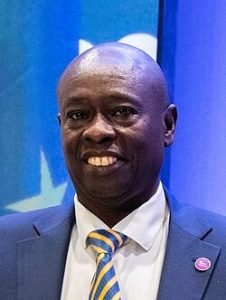
Former Deputy President Rigathi Gachagua declared his 2027 presidential bid under the Democracy for Citizens Party (DCP). He pledged to restore Kenya’s economic and social stability, scrap the housing levy, revive free education, and strengthen healthcare. Gachagua stated his goal is to return Kenya to the stability of the Mwai Kibaki years. President Ruto called the declarations premature amid criticism over his State House meetings with regional leaders
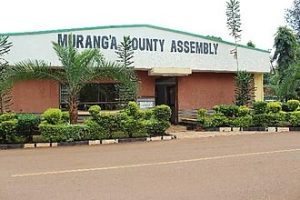
Former Deputy President Rigathi Gachagua accused Murang’a MCAs of betraying voters by visiting State House for handouts. The dispute centered on President William Ruto’s support in Mount Kenya. Government spokesman Isaac Mwaura said Ruto retained strong but quiet backing, crediting him with reviving the economy. ODM MP Caleb Amisi said leaders who took State House support were unlikely to oppose President Ruto in 2027.
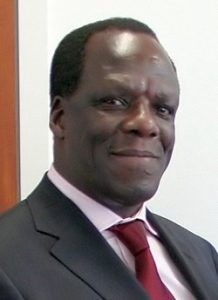
Kakamega Governor Fernandes Barasa urged President William Ruto and Orange Democratic Movement (ODM) leader Raila Odinga to sack Cooperatives Cabinet Secretary Wycliffe Oparanya. Barasa accused Oparanya of meddling in local politics and undermining the party. Oparanya dismissed the claims, affirmed loyalty to ODM, and said disputes in Kakamega risked weakening the party ahead of the 2027 elections.

A TIFA survey found that most Kenyans felt worse off under President William Ruto. 62% said the country is on the wrong track. 70% reported worsening household finances since 2022, led by Mt. Kenya at 85% and Nairobi at 74%. Rising costs and new taxes topped concerns, with only 14% reporting improvement. 64% opposed Ruto’s deal with Raila Odinga.

President William Ruto rejected claims Kenya was a failed state and urged Kenyans to stay optimistic. He cited economic stabilization, universal health coverage, and the housing program as progress during the funeral of Mzee Isaac Ichung’wah in Kiambu. Ruto announced a record maize harvest of 75 million bags, adding that agricultural reforms had strengthened food security and boosted farmer earnings.

50 political parties alleged that the Independent Electoral and Boundaries Commission (IEBC) and the Office of the Registrar of Political Parties (ORPP) were undermining multi-party democracy ahead of 2027. At a Political Parties Liaison Committee retreat in Athi River, they cited plans to deregister parties on “flimsy grounds” and bypass them in favor of external actors. Leaders also warned that 54 parties faced financial strain from delayed state funding.
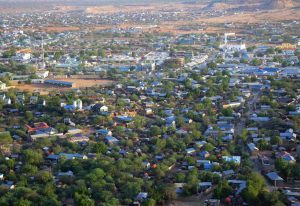
Wiper leader Kalonzo Musyoka reported that Jubaland armed forces were operating in Mandera County, disrupting schools and unsettling residents. Interior Cabinet Secretary Kipchumba Murkomen dismissed the claims, saying Kenya only hosts Somali refugees and that Al Shabaab remains the main security threat. Rigathi Gachagua and former Chief Justice David Maraga criticised government leaders for not addressing the issue publicly.
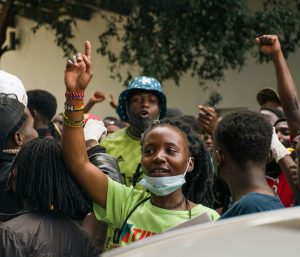
Lecturers at the University of Nairobi, Maseno, Egerton, and Kisii universities went on strike Sept. 17, after the government failed to implement collective bargaining agreements (CBA). The Universities Academic Staff Union (UASU) and Kenya Universities Staff Union (KUSU) cited KSh 7.9 billion in arrears from the 2017–2021 CBA and incomplete payments under the 2021–2025 deal. The strike began despite the Treasury releasing KSh 2.5 billion for Phase Two of the 2021–2025 agreement.
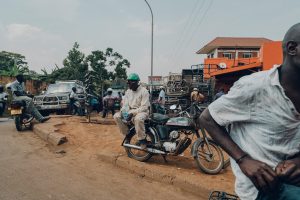
New regulations were introduced for the boda boda sector to improve safety and accountability. Riders must re-register, wear county uniforms, and join Savings and Credit Cooperative Societies (SACCOs). They must also hold valid licenses, insurance, helmets, and good conduct certificates. Stage chairmen will enforce compliance. The rules follow a Sept 11 meeting with senior police chiefs and the National Boda Boda Association to address safety and security concerns.

